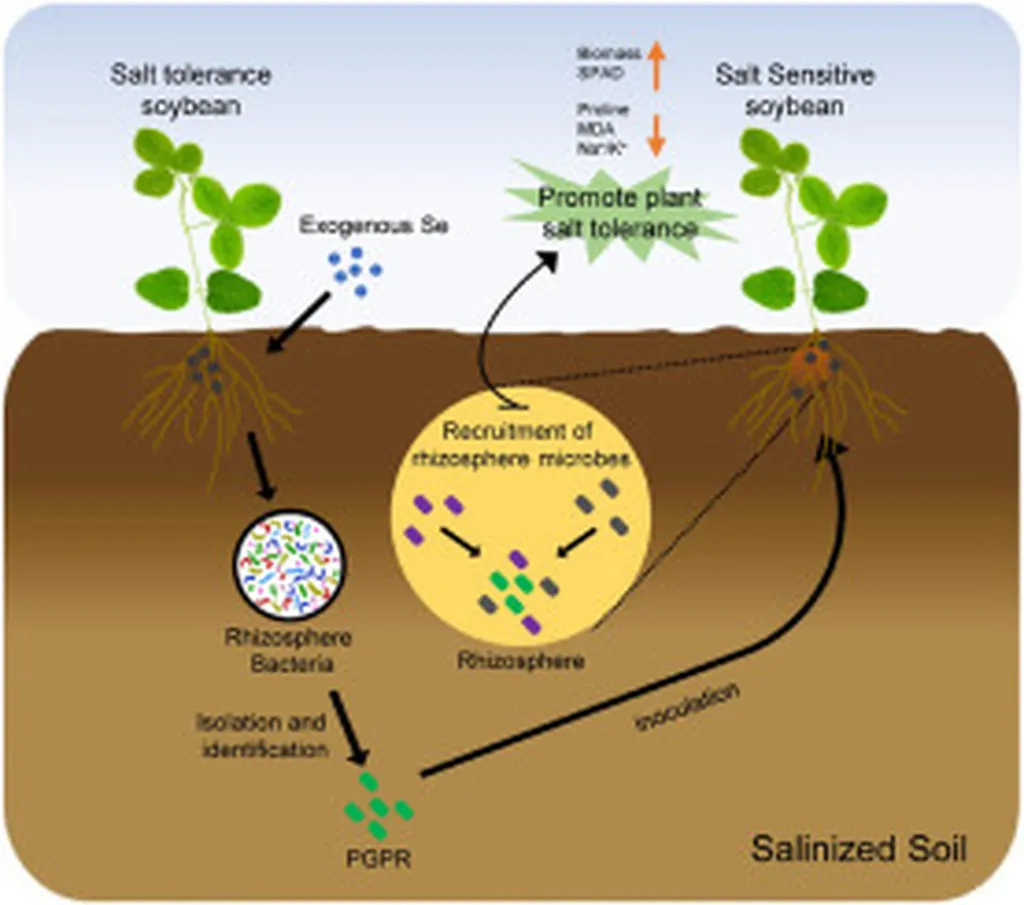In the battle against salt stress in crops, a tiny ally has emerged as a potential game-changer. Researchers have identified a strain of endophytic bacteria, Priestia megaterium 170T-4, that significantly enhances soybean’s tolerance to saline-alkali soils, opening new avenues for agriculture in challenging environments.
The study, led by Shutian Hua from the Guangxi Key Laboratory for Polysaccharide Materials and Modifications at Guangxi Minzu University, isolated and identified 154 strains of endophytic bacteria from the roots of 10 soybean varieties grown in coastal saline-alkali soils. Among these, Priestia megaterium 170T-4 stood out due to its high salt tolerance and growth-promoting effects.
“Salt stress is a major constraint to crop productivity worldwide,” Hua explained. “Our findings suggest that Priestia megaterium 170T-4 can improve soybean growth under salt stress by modulating ion transport, osmotic responses, and hormone signaling.”
The research, published in *Frontiers in Microbiology* (which translates to “Frontiers in Microbiology” in English), revealed that the strain significantly improved plant height, root elongation, and the Na+/K+ homeostasis in soybeans. It also enhanced the content of proline and chlorophyll, which are crucial for plant growth and photosynthesis.
The commercial implications of this research are substantial. Saline-alkali soils cover vast areas of the globe, limiting agricultural productivity. The use of microbial inoculants like Priestia megaterium 170T-4 could transform these marginal lands into productive farmlands, boosting crop yields and food security.
Moreover, the study’s findings could pave the way for developing biofertilizers that enhance crop resilience to abiotic stresses, reducing the need for chemical fertilizers and promoting sustainable agriculture. This aligns with the growing global demand for eco-friendly and sustainable farming practices.
The research also highlights the potential of endophytic bacteria in improving crop tolerance to various environmental stresses. “Understanding the mechanisms by which these bacteria enhance plant tolerance can lead to the development of more effective and targeted microbial inoculants,” Hua added.
As the world grapples with the challenges of climate change and food security, the discovery of Priestia megaterium 170T-4 offers a promising solution. It underscores the importance of exploring and harnessing the power of microorganisms to enhance agricultural productivity and sustainability.
In the future, we may see more farms adopting microbial inoculants as a standard practice, not just for improving yields but also for enhancing the resilience of crops to environmental stresses. This shift could revolutionize the agricultural sector, making it more sustainable and productive in the face of a changing climate.

